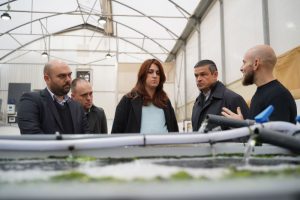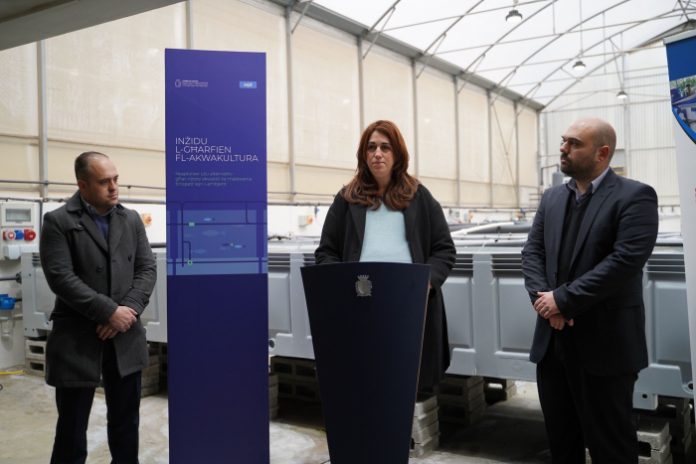The Department of Fisheries and Aquaculture is currently working on a research project called SIMTAP (Self-sufficient Integrated Multi-Trophic Aquaponic Systems).
The main objective of the SIMTAP project is to design an innovative food production system that drastically reduces fish feeding. This is with the aim of reducing the environmental impact from this sector.
This was announced by the Parliamentary Secretary for Fisheries, Aquaculture and Animal Rights Alicia Bugeja Said when she explained that this project is expected to end this year and is being co-financed with several government entities , as well as with entities from five different countries. The total investment for this project amounts to €170,000.

It was also explained how the Directorate of Aquaculture is working on a system where primarily the aurat is fed commercial food. In this way, the water will be passing through a number of tanks with different organisms and the nutrients will be filtered in the water that comes from the feed and fish excrement.
This will help to reduce the demand on filtration and at the same time other species that have commercial potential can be grown. Aquaculture is one of the pillars of the Common Fisheries Policy and in the Blue Growth agenda.
Blue Growth is a long-term strategy for sustainable growth of the maritime sector as a whole. Therefore it is important that Malta, as a European country, continues to grow the aquaculture sector with systems that are economically efficient.
The Parliamentary Secretary Alicia Bugeja Sajd claimed that this project is one of a series of initiatives that the government is taking forward in order to strengthen the circular economy of our country. She went on to say that through this project and others that are planned for the coming years, the government is committed to seeing aquaculture develop, that a new niche is created that gives rise to private investment and that opportunities are also increased of work in this sector for the young generation.
“We want to continue strengthening the foundations of local ecological sustainability, while incentivizing economic growth in the fishing and aquaculture sectors. We will continue to create new economic niches for private investment, and we must continue to work in favor of new job opportunities and research for the young generation,” concluded Parliamentary Secretary Bugeja Said.
Photo: MAFA_PS










